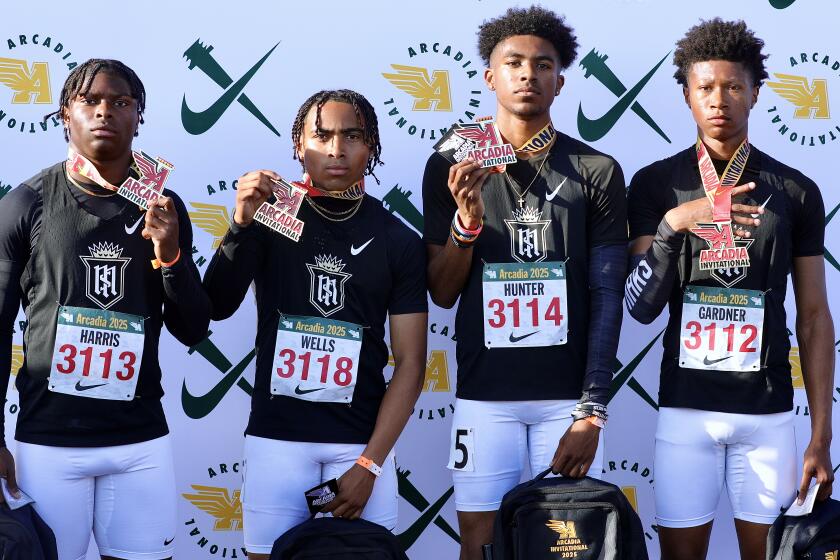Put Some Fear Into Sports Agents
- Share via
Last year three University of Southern California football players were suspended for taking money and other gifts from an Oxnard sports agent. They jeopardized their collegiate careers and their university’s reputation and athletic program. Half of the states, including California, have laws that regulate contacts between agents and student athletes. Now the state Legislature wants to up the ante and punish the agents when the rules are broken. It’s about time.
The National Collegiate Athletic Assn. (NCAA), which oversees college sports, prohibits student athletes from accepting gifts from anyone seeking to market their athletic talent. College athletes also are forbidden to retain agents to represent them. Under NCAA rules, those who accept money or other gifts from anyone may lose their eligibility to play for university teams, although they later may apply to the NCAA for reinstatement. Those who enter into agreements generally do not play again.
Even so, agents continue to swarm around athletes, particularly those playing football or basketball, in which the potential for professional riches are the greatest and the agent’s cut would be highest. From 1989 through 1992 only one case per year of improper agent-student contact was reported. In 1995, 17 complaints were sent to the NCAA; the schools involved included USC, UCLA and UC Berkeley.
The NCAA can punish university programs by canceling parts of their schedules or, worse, deliver the “death penalty,” shutting down a program. But the NCAA is a creature of the universities and has no authority to punish the agents themselves. The state of California does, but it is hamstrung by the narrow scope of current law.
Committee votes are scheduled in Sacramento next week on two bills that would tighten the screws. Provisions would broaden the definition of “sports agent” to include members of the State Bar--who are now exempt--and intermediaries such as finance advisors. State officials would be given subpoena power to investigate violations of existing laws. Universities would have expanded power to sue agents to recover civil damages. If major elements of these measures are adopted--and they should be--California might have a fine season for college athletics and a bad season for sharks.
More to Read
Go beyond the scoreboard
Get the latest on L.A.'s teams in the daily Sports Report newsletter.
You may occasionally receive promotional content from the Los Angeles Times.










